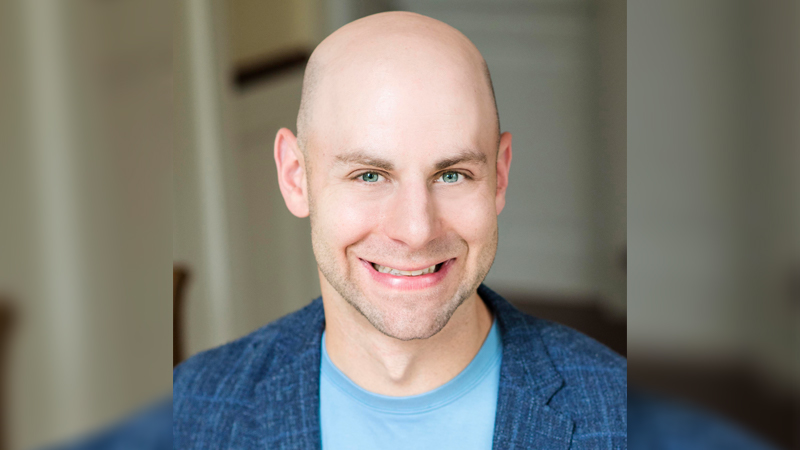
The best-selling author, TED speaker, and Wharton School organizational psychology professor explains how to find motivation and meaning at work.
Adam Grant’s journey to becoming a world-renowned organizational psychologist began in an unlikely place: a swimming pool. After being named a high school All-American diver, Grant earned a spot on his college team. That meant more challenging dives from higher platforms, leading to painful belly flops and back smacks. It made him question whether the sport he loved was his true calling.
“At one point I had the twisties,” he said of the ailment Simone Biles also had in the Tokyo Olympics. “I had no idea what was right side up or upside down. My body was not able to execute moves my brain knew how to do. It was deeply unsettling.”
Grant reevaluated his path. Rather than persuading himself to be a successful college diver, Grant quit. In his new book Think Again, Grant urges business leaders to reevaluate their goals, assumptions, and staunchest beliefs in a similar way. It’s easy to convince yourself that things are going well, but it’s important to move on when things aren’t working.
It’s part of Grant’s mission to help people find meaning and motivation at work. After diving, Grant threw his passion into the study of organizational psychology and eventually became a professor at The Wharton School, a New York Times bestselling author and TED speaker. He has been recognized as one of the world’s 10 most influential management thinkers and featured in Fortune’s “40 under 40” list.
In a recent LIVE@LIFT discussion with Loren Hudson, Senior Vice President and Chief Diversity Officer at Comcast Cable, Grant explained why business leaders and founders should consistently reevaluate core beliefs, hold themselves accountable to criticism, and cultivate more collaborative workplaces.
Define success at the outset of a project so your judgment isn’t clouded later
It’s crucial to be honest with yourself when things are not going well, or you risk doubling down on a bad idea. To prevent that, Grant urges leaders and founders to determine success and failure from the outset.
“Before you make a decision, ask yourself: ‘what would convince me this is not the right path?’ Doing that up front keeps you honest with yourself as opposed to waiting until you have already executed on that decision and become biased and blinded to the alternative path,” said Grant. “You don’t want to trust your gut. You test your gut to see if your intuition is reliable.”
Re-evaluate business goals and decisions
Grant urges leaders to have career check-ups once or twice a year. It’s a chance to step back from the day-to-day and make sure you are on the right path.
“Ask yourself: ‘What are the moments you and your team were at your best — and what brought those out?’” he said. “What were the moments you and your team were at your worst — and can that be avoided?”
Challenge people you manage to hold you accountable
Grant shared the story of Admiral Bill McRaven, who oversaw the raid on Osama Bin Laden. Despite being such a decorated military officer, McRaven frequently urges others to tell him if he makes a bad decision.
“Bad news does not get better with time, and he wanted protection from himself,” said Grant. “That is a form of accountability we miss in most workplaces. The best leaders I’ve worked with have the confidence and humility to admit what they don’t know and say ‘I’m wrong.’”
Criticize yourself out loud
Companies can fall into a dangerous culture where leaders rarely receive pushback or constructive feedback on ideas. To combat that, leaders should criticize themselves in the open. That plan worked for former Intuit CEO Brad Smith who posted a performance review from his board of directors on his office door for all to see, said Grant.
“You’re not just claiming that you want feedback; you’re showing you can take it. Take any steps you can as a leader to reduce that uncertainty and show that you take your work seriously but don’t take yourself that seriously. Your goal is not to prove yourself but to keep improving yourself. That goes a long way with your team.”
Ask without fear
The most supportive workplaces and communities have a similar attribute: people are encouraged to ask for help. In fact, he said 75-90% of the help that happens in organizations starts with a request. When people feel comfortable enough to ask for assistance, it leads to incredible collaboration.
“We don’t want to be vulnerable. We want to be self-reliant. There is a temptation to always be on the giver side of an exchange, which I think is a mistake,” said Grant. “My definition of a great community is where people give with no strings attached but also ask without fear.”
![]()
To read more inspiring startup stories and to stay connected to Comcast NBCUniversal LIFT Labs, sign up for our newsletter and follow us on Twitter.
